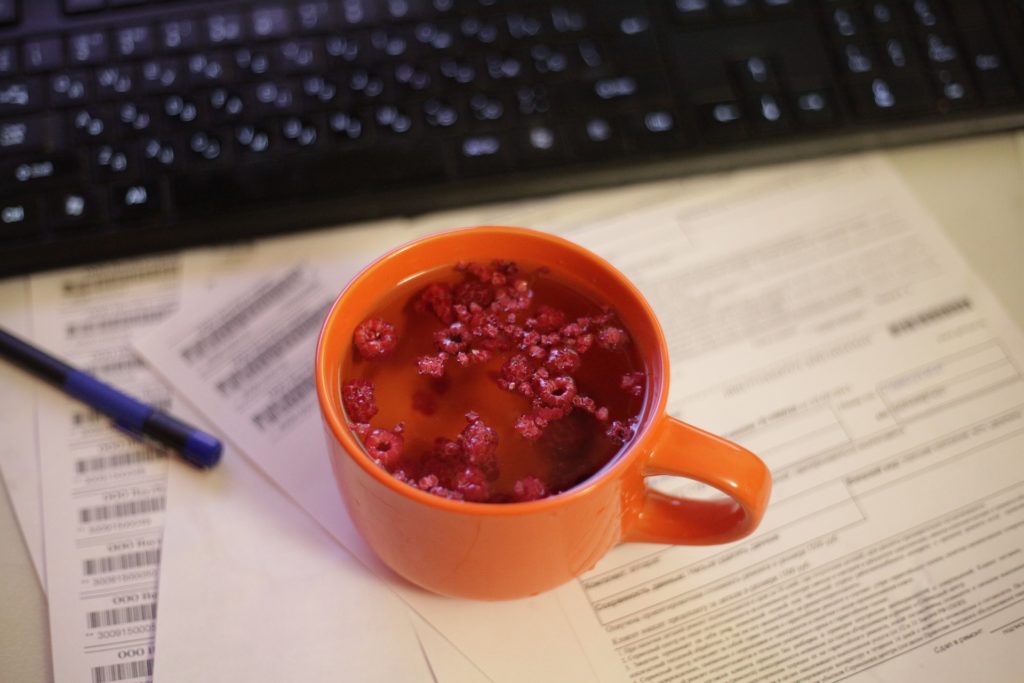
by Spike Marlowe

Today is brought to you by raspberry tea.
In the past, I’ve spent a ridiculous amount of time thinking about failure. In fact, I’ve spent a ridiculous amount of time feeling like a failure. More than is good for one’s mental health, for sure. But over the past few years, my perspective on failure has changed, and recently I decided as long as I don’t quit the things that matter to me, the things I’m passionate about, I don’t believe in failure anymore.
Let me back up.
There was a time when if something didn’t work out the way I had hoped or intended, that I had failed. As a result, my successes were far and few between. But I also began to recognize I learned from my failures. And, more often than not, I could take bits I’d learned from my failures and apply them again. The reapplications often resulted in successes.
Over time, I realized success and failure is often a matter of perspective.
Let’s talk about science.
When trying to figure something out, scientists and inventors conduct experiments. Often, the experiments don’t necessarily result as the scientists would like. However, the scientists don’t say, “Woe! I have failed!” Sure, they get discouraged and frustrated and have their “What the fuck!?” moments just like the rest of us. But then they hop back into the lab and go for it again, taking what they learned in the previous experiments and applying them to future experiments.
Having an experiment “fail” doesn’t mean you quit. It means you try again.
If you look at our most famous scientists, they persevered. They experimented until they figured out how to make their experiments work. They conducted an ass-ton of unsuccessful experiments. But look at their successes! Look at the advancements in technology, medicine, and how we understand the world. You are surrounded by the results of what were once experiments that didn’t work out as hoped. Sometimes experiments didn’t work out as planned, but something better was discovered. Penicillin is just one example of this. And how many lives has that “What the hell is that?!” moment saved?
I’m sure you know where I’m going with this.
You’re an artist, and just like scientists, inventors, architects, engineers and those fabulous humans beings who figured out some cool bit about the world you now use everyday, you’re creative. You (hopefully) create a lot of stuff. And a lot of it probably doesn’t work out. Right? Pitches aren’t accepted, stories aren’t sold, films don’t find a distributor, plays aren’t produced, paintings aren’t bought or shown in a gallery, music isn’t produced.
Does this mean you’ve failed? Does this mean you’re a failure?
No. It means you’re just like every other marvelously creative person on the planet. And just like every other creative person on the planet, you’re going to have a lot of art that isn’t going to work out. You’re going to have a lot of “failures.” But do you have to look at the unsuccessful art pieces that don’t succeed the way you want them to as failures?
No. You can choose your perspective. You can choose to say, “Okay, that didn’t work. But what if I try this?” And then go forward and tweak what you did the previous times, or try something entirely new.
Another example is children. Have you ever watched a young child figure out how to do anything? Eat, walk, color, build a castle out of blocks, dress their doll, use the bathroom? Do they do it right the first time? Probably not. And you probably didn’t either. But you stuck to it, whatever it was that you were trying to learn. You experimented until you figured out what worked, and you did it over and over and over again, refining your skill in eating, tying shoes, going to the bathroom, building a giant Death Star out of Legos.
You didn’t fail as a kid, and when your art isn’t working out, you’re not failing now. Just like all those scientists and inventors and architects and crazy humans who figured out fire and how to hunt bison and build the Seven Wonders of the World.
But just like the scientists and children, you’ve got to try over and over and over again. You’ve got to persist. You’ve got to be willing to tweak your own experiments in making art, or look at what’s not working from a new perspective. And then you’ve got to show your art to the world, in whatever way you’re going to, and then get back to work, no matter what anyone else says.
The other thing is, even if specific pieces of your art don’t work out on the first several tries if you’re figuring new ways to make your art, and you’re getting better, you’re learning. And if that isn’t worth everything, I don’t know what is.
We’re crazy in this culture–we’re obsessed with the genius, with the naturally gifted artists who were born making amazing art. But you know what? The grand majority of our success stories worked their asses off, learning and growing and working on their craft until they figured out how to rock it.
So go out and “fail.” Fail a lot. And then play with your art, and figure out what’s not working, what you could do better, and then do that. And learn to recognize when your mistakes are actually a giant success.
Spike Marlowe has held a number of odd jobs, including working in a wild west show, as a detective, as a Bigfoot researcher, as a writer for an Internet content farm, and as a busker. These days she’s a writer, blogger, and bizarro editor for Eraserhead Press, with a focus on the New Bizarro Author Series. Her first book, Placenta of Love, is now available at all the usual locations. You can stalk her online at her website, and Facebook or Twitter at @spikemarlowe.
This post may contain affiliate links. Further details, including how this supports the bizarro community, may be found on our disclosure page.

